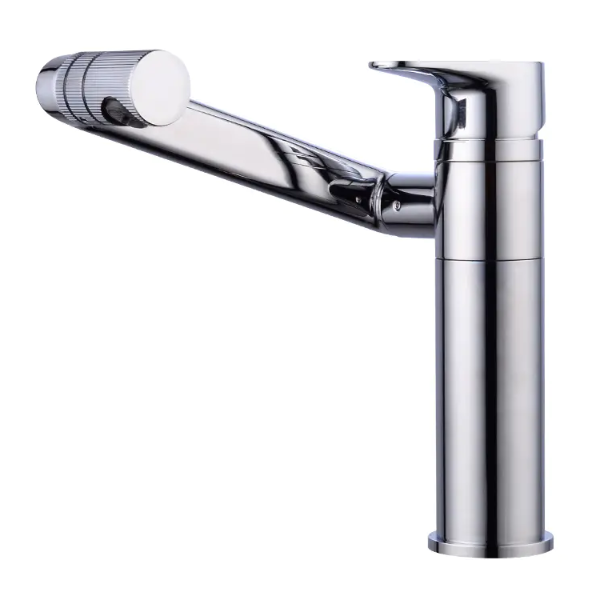A Basin Mixer Faucet Factory plays an essential role in the production of faucets used in homes, commercial establishments, and industrial settings. These factories focus on the design, development, and manufacturing of basin mixer faucets, which are known for their single-handle functionality that controls both water temperature and flow. As more consumers prioritize convenience, style, and water efficiency, the demand for well-designed and reliable basin mixer faucets continues to grow.
The production of basin mixer faucets begins with the selection of quality raw materials. Most factories rely on metals such as brass, stainless steel, or copper due to their durability and resistance to corrosion. In some cases, factories may also use materials like plastic or composite alloys for specific parts, depending on the faucet's design and intended application.
Once the raw materials are sourced, the factory focuses on the machining and casting processes. For instance, the faucet’s body may be cast into shape using die-casting or molding techniques. These methods allow for precision and consistency in the production of faucet components. The spouts, handles, and valve bodies are then meticulously shaped and assembled, often using specialized machines to ensure smooth and accurate construction.
After the core components are produced, the faucets undergo a series of finishing processes. These may include polishing, electroplating, or applying protective coatings. Electroplating, in particular, is a common practice, where a layer of chrome, nickel, or other metals is applied to the faucet's surface to enhance its appearance and resistance to corrosion. Factories may also focus on designing faucets with a variety of finishes, including matte, brushed, or shiny surfaces, to cater to different aesthetic preferences.
A key focus for any Basin Mixer Faucet Factory is quality control. Given that these faucets are often used in residential and commercial settings, ensuring they function correctly and last for an extended period is critical. Each faucet typically undergoes rigorous testing, which may include pressure tests to ensure there are no leaks, functional tests to check the ease of adjusting water temperature and flow, and durability tests to guarantee that the materials and coatings stand up to everyday use.
Factories may also implement advanced technologies, such as automated inspection systems or quality monitoring software, to detect defects during the manufacturing process. This helps reduce the chances of faulty products reaching the market and provides customers with reliable, long-lasting faucets.
The role of a Basin Mixer Faucet Factory extends beyond production. These factories often collaborate with designers, suppliers, and distributors to meet changing market demands. As trends in home design evolve, there is a growing focus on creating faucets that match contemporary or traditional bathroom styles. Many manufacturers now offer customized options, such as handles in different shapes or faucets with integrated water-saving features, to cater to environmentally-conscious consumers.
Moreover, the factory may be involved in expanding its product range to cater to different customer needs. This could mean producing faucets in various sizes, finishes, or configurations, allowing for versatility in the market. Additionally, some factories are exploring smart faucet technologies, such as touchless activation or temperature memory, to align with modern consumer preferences for convenience and innovation.
Sustainability has become a critical consideration in faucet manufacturing. Many Basin Mixer Faucet Factories are adopting practices that reduce their environmental impact. This includes reducing water and energy consumption during production, recycling materials, and designing faucets that help conserve water. Many modern basin mixer faucets are now equipped with flow restrictors or aerators to reduce water usage, benefiting both the environment and consumers’ water bills.
Factories are also shifting toward more sustainable packaging and transportation methods. Using recyclable or biodegradable materials for packaging and reducing the carbon footprint associated with distribution are key priorities in today’s environmentally conscious market.
The Basin Mixer Faucet Factory plays a vital role in supplying the market with efficient, functional, and aesthetically pleasing faucets. With continuous advancements in manufacturing technology, quality control, and sustainability practices, these factories are not only meeting the current demands of consumers but also preparing for the future of bathroom fixtures. As the industry continues to evolve, these factories will remain integral to delivering innovative, reliable products to a global audience.

